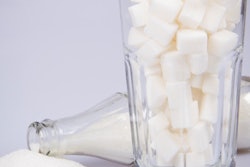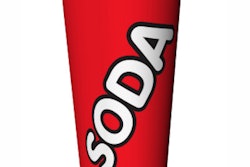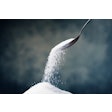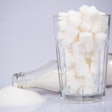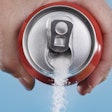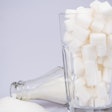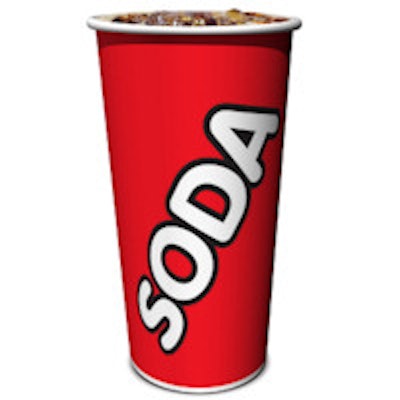
A U.S. district court in California has rejected efforts to stop a San Francisco law that requires health warnings on ads for sodas and sugary drinks from taking effect. The pioneering law mandates that warnings must cover 20% of ads. The ads also must warn of increased risks of obesity, diabetes, and dental caries from consuming these beverages.
The May 17 decision by U.S. District Court Judge Edward M. Chen clears the way for the law, which was approved in 2015, to take effect in July. The judge noted there is extensive research that shows that sugar-sweetened beverages are "a significant source of calories" that contribute to health problems.
The ordinance requires that warnings be included on ads for soda and other sugar-sweetened beverages on billboards, buses, transit shelters, posters, and stadiums in San Francisco. The warning must cover 20% of the area of the ad. The warnings are not required for ads in newspapers, magazines, television, menus, or product labels.
"The warning that drinking sugar sweetened beverages 'contributes' to tooth decay is likely factual and accurate," Judge Chen wrote in his decision. "The city has a legitimate interest in public health and safety, and the warning that [sugar sweetened beverages] contribute to tooth decay is reasonably related to the city's interest in public health and safety."
The labels would read: "WARNING: Drinking beverages with added sugar(s) contributes to obesity, diabetes, and tooth decay."
Chen rejected industry arguments that the warnings are misleading and violate free speech.
Public health versus Big Soda?
The American Beverage Association, the California Retailers Association, and the California State Outdoor Advertising Association are suing San Francisco to overturn the law. Judge Chen denied their request for an injunction to keep the measure on hold while the case proceeds.
“Public health trumps Big Soda's desire for unrestrained marketing.”
Lawyers for the beverage industry claimed San Francisco unfairly singled out their products, noting that calorie-rich foods like pizzas aren't required to carry warnings. Judge Chen questioned the credibility of beverage companies' threats to stop advertising in the city, noting that tobacco companies continue to be profitable despite having to put government-mandated warnings on their products. The judge also pointed out that drug companies still broadcast ads despite lengthy warnings about the side effects of their products.
Researchers with the International and American Association for Dental Research (IADR/AADR) have called for a re-emphasis on free sugars as the main cause for caries (Journal of Dental Research, August 10, 2015).
California lawmakers have tried unsuccessfully to pass similar measures in the last few years that would have required soda companies to include warning labels about the sugar content in the drinks they sell in the state. The bills were aimed at curbing the mushrooming rate of diabetes in California, which has the biggest number of new diabetes cases annually in the U.S., according to the Diabetes Coalition of California.
"Public health trumps Big Soda's desire for unrestrained marketing -- it's as simple as that," said Harold Goldstein, MD, executive director of the California Center for Public Health Advocacy, in a statement. "Every phony complaint made by the industry to withhold vital health information from the public was dismissed by the court."




